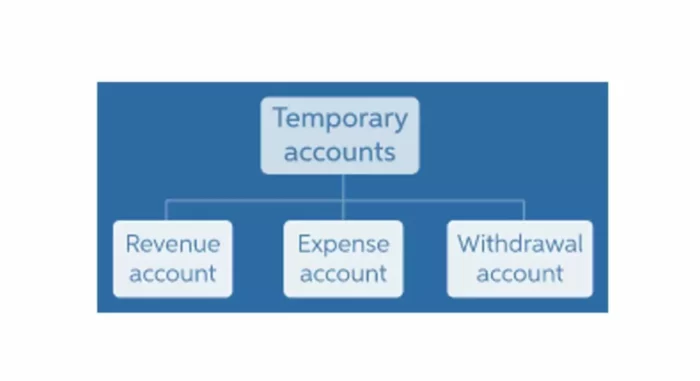
Again, you’ll want to check with your state board of accountancy to see what type of experience you’ll need, the exact amount of hours and if part-time work is accepted. All CPAs must have a bachelor’s degree and 150 semester (225 quarter) hours. However, the specific amount of upper-level accounting courses, business courses, and other requirements are left to individual states. The required years of experience you need to take the CPA Exam vary from state to state, but most call for at least two years working in public accounting. Some states will accept other experiences, such as working in government or industry, but you will generally need more years of such experience.
- In Alabama, candidates need one year of full-time employment in a public accounting firm or two years of full-time employment in industry, business, government, or academia.
- “CPAs charge more than regular accountants or tax preparers,” says Jiang.
- The Bureau of Labor Statistics (BLS) projects employment for accountants and auditors to grow by 7 percent from 2020 to 2030, which is as fast as the average for all occupations [5].
- Calling in a tax-focused CPA could make sense if you’re struggling to figure something out about your tax life, have complex needs or have questions you could use extra guidance with.
- Let us know what type of degree you’re looking into, and we’ll find a list of the best programs to get you there.
Key Soft Skills for CPAs
Readers wondering “What is a CPA?” may think only of their local tax preparation professional — someone who sits behind a desk and files dozens of tax returns from January to April. A CPA career path offers many different avenues and destinations, with year-round work opportunities beyond tax season. Earning the CPA credential is a big time commitment, and the exam is challenging. Still, those with a CPA earn 25% more, on average, than non-CPA accountants.
Is CPA a certificate, degree, or license?
I really enjoyed working on various types of projects with different clients. I worked with many different not-for-profit organizations and found that I have a passion for mission-driven organizations. These include performing audits of public U.S. companies and preparing audited financial statements for a company, such as a balance sheet or an income statement. Federal and state laws require CPAs to maintain independence when performing audits and reviews.
Contents
If all you need is help filing a relatively simple return, though, you may not need the full services of a CPA; a non-CPA tax preparer, or even do-it-yourself tax software, may be enough to get your taxes done. BEC is arguably the easiest section, and most candidates pass it on their first attempt. The BEC section has 62 multiple-choice questions, four task-based simulations, and three written communication tasks, wherein test takers must respond in a letter or memo format to a work scenario.
Certified Public Accountant: What the CPA Credential Means
Adam received his master’s in economics from The New School for Social Research and his Ph.D. from the University of Wisconsin-Madison in sociology. He is a CFA charterholder as well as holding FINRA Series 7, 55 & 63 licenses. He currently researches and teaches economic sociology and the social studies of finance at the Hebrew University in Jerusalem.
What Can CPAs Do That Accountants Cannot?
During this meeting you’ll want to suss out their experience, like how long they’ve been working and who their typical client is, as well as determine how much they charge. Bringing a copy of your most recent tax return to this meeting will help with that estimate. Because they examine confidential financial records and generally have access to sensitive information, like your Social Security number, it’s imperative to work with a CPA that you trust. Because of that, most people find the CPAs they work with through reviews and referrals from people they already know and trust. While the CPA Exam is the same for all candidates, other requirements may differ by jurisdiction.
You’ll also represent clients before the IRS to help them resolve their tax problems. The IRS only allows CPAs, attorneys, enrolled agents, enrolled retirement plan agents, and enrolled actuaries to represent clients directly. Let us know what type of degree you’re looking into, and we’ll find a list of the best programs to get you there. Lizzette Matos is a paid member of the Red Ventures Education freelance review network. As a CPA, I find it can, at times, be challenging to manage various competing projects and deadlines. Also, especially during these unusual COVID times, it can be challenging to find the optimal balance between personal and professional priorities.

A CPA is a financial professional licensed by a state board to provide accounting services to the public. A CPA performs accounting duties such as tax preparation, auditing, and consulting. An accountant is an individual who professionally practices accounting. As a certified public accountant, you’ll have the opportunity to work with individuals and businesses in various industries, advising on financial and tax-related matters.
Please be aware, the privacy policy may differ on the third-party website. Adtalem Global Education is not responsible for the security, contents and accuracy of any information provided on the third-party website. Note that the website may still be a third-party website even the format is similar to the Becker.com website. We believe everyone should be able to make financial decisions with confidence. Coursera’s editorial team is comprised of highly experienced professional editors, writers, and fact…
This guide explains the process of obtaining and maintaining CPA certification. It also explores the benefits of this optional but valuable professional designation and answers common questions about earning it. Although these accounting pros usually come to mind when it comes to filing income taxes, they can help with quite a few other things. Therefore, you can take on additional duties related to the Internal Revenue Service (IRS) and Securities and Exchange Commission (SEC) that not all accountants can perform.
The Discipline sections are Business Analysis and Reporting (BAR), Information Systems and Control (ISC), and Tax Compliance and Planning (TCP). There isn’t one particular thing a CPA does because it’s not a job title or career path. Instead, it’s a professional designation that offers accounting professionals more flexibility and mobility in their career.
Although tax returns are not open to the public, they fall under the public accounting umbrella due to the legal requirement of disclosing financial information to the government. Public accounting also includes filing corporations’ records with the Securities and Exchange Commission (SEC) and potential investors. Regardless of their employer, most CPAs compile, maintain, and review financial statements and related transactions.
This is used to assess candidates’ writing skills as well as their organization, clarity, and conciseness. The AUD section is a bit easier, especially if you’ve tackled FAR first. It covers the planning and reviewing of engagements, internal controls, obtaining and documenting information, and communications preparation.

They also give you an opportunity to gain experience using industry-standard computer applications and software. Most states also require work experience, supervised and verified by a licensed CPA. In Texas, for example, candidates need 2,000 hours of experience in accounting services. In Alabama, candidates need one year of full-time employment in a public accounting firm or two years of full-time employment in industry, business, government, or academia.
To obtain a CPA license, you must pass all four parts of the CPA exam. Once you’ve passed them and met the work experience requirement, you’re eligible to apply for a CPA license with your state board of accountancy. One of the things I really like about accounting is that there are many different jobs available. I decided that I wanted to start my career in public accounting in order to learn a lot in a short period of time and be exposed to different types of clients and different areas of accounting. I was fortunate to get a job offer from a mid-size CPA firm in New England while I was a senior in college, and I spent many years working there as an auditor. The CPA is an important credential to me, and I still get continuing education credits every year to keep up with our state requirements.
While consulting at Enron, Arthur Andersen CPAs did not maintain independence and performed both consulting services and auditing services, which violates the CPA code of ethics. The AICPA requires that all CPA designation holders adhere to the Code of Professional Conduct, which lays out the ethical standards CPAs must adhere to. As its name suggests, the Uniform CPA Examination is the standardized test all accounting professionals in the United States must pass to earn their CPA license. NASBA develops and administers the four-part exam, which underwent a significant update in 2024.
It’s always best to check your state’s rules and regulations before starting your CPE. Many states have passed versions of the Uniform Accountancy Act (UAA). This has helped to create more consistency in licensing across states so that you can be mobile while working in this profession. Be certain to understand the requirements in your state and any states you intend to work in to ensure your license is accepted. Each state sets its specific requirements for your eligibility to take the Uniform CPA Exam.

